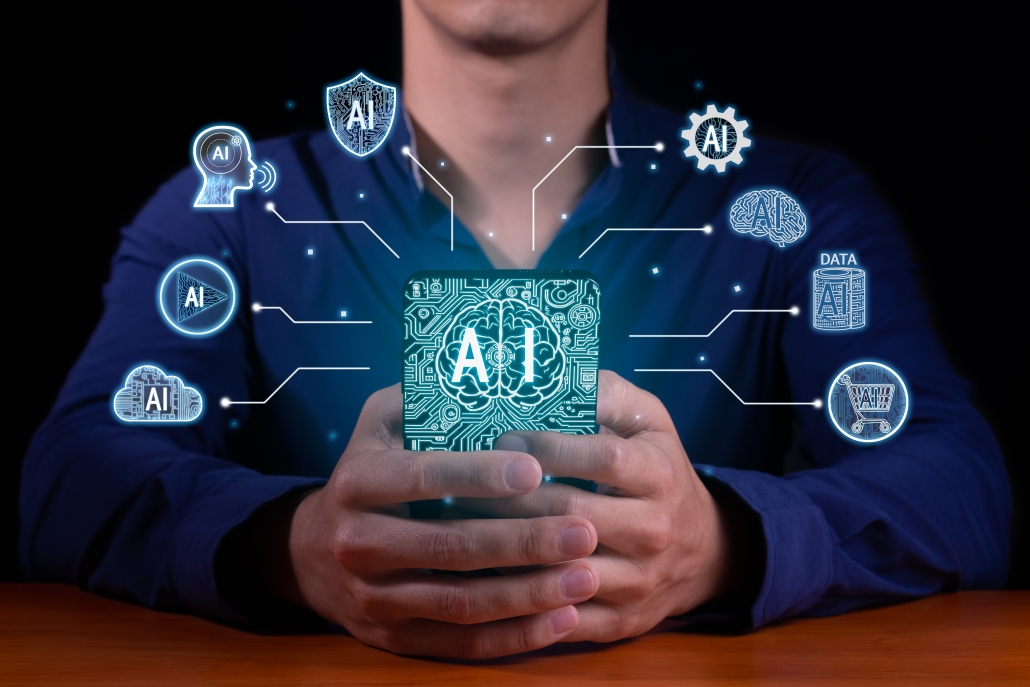Enterprise Resource Planning (ERP) systems have long been the backbone of organizational operations, streamlining processes and integrating data across various departments. In recent years, the emergence of Artificial Intelligence (AI) and Machine Learning (ML) technologies has brought a new wave of transformation to the ERP landscape. AI and ML are revolutionizing how ERP systems function, enabling organizations to unlock unprecedented efficiency, accuracy, and innovation levels. So what are the profound impacts of AI and ML on ERP systems, and the benefits, challenges, and future possibilities?

Enhanced Decision-Making: One of the significant impacts of AI and ML on ERP systems is their ability to provide data-driven insights for better decision-making. By analyzing vast amounts of data, AI-powered ERP systems can identify patterns, correlations, and anomalies humans might miss. ML algorithms can learn from historical data, predict outcomes, and suggest optimal decisions. This empowers organizations to make informed choices regarding inventory management, supply chain optimization, pricing strategies, and more, increasing efficiency and profitability.
Process Automation: AI and ML technologies have revolutionized process automation within ERP systems. Repetitive and time-consuming tasks, such as data entry, inventory management, and financial reconciliations, can now be automated with the help of intelligent algorithms. This automation reduces manual errors, accelerates processing times, and frees human resources to focus on more strategic and value-added activities. Organizations can achieve significant cost savings, improved accuracy, and increased productivity by leveraging AI and ML for process automation.
Predictive Maintenance: With AI and ML, ERP systems can proactively monitor and predict critical assets and equipment maintenance needs. These systems can detect patterns indicating potential equipment failures or maintenance requirements by analyzing sensor data, historical maintenance records, and other relevant information. This enables organizations to schedule maintenance activities in advance, minimizing downtime, optimizing maintenance costs, and maximizing asset utilization.
Demand Forecasting and Inventory Management: AI and ML techniques have greatly enhanced ERP systems’ demand forecasting and inventory management capabilities. AI-powered ERP systems can accurately predict future demand patterns by analyzing historical sales data, market trends, external factors, and customer behavior. This helps organizations optimize inventory levels, reduce stock-outs, minimize excess inventory, and improve overall supply chain efficiency. Moreover, ML algorithms can dynamically adjust forecasts based on real-time data, enabling agile inventory management.
Personalized Customer Experiences: AI and ML have transformed how ERP systems handle customer interactions and enable customized experiences. By leveraging AI chatbots and natural language processing, ERP systems can provide instant and accurate responses to customer queries, improving customer satisfaction and reducing response times. ML algorithms can analyze customer data to identify preferences, purchase patterns, and potential upselling opportunities, enabling organizations to deliver tailored product recommendations and personalized marketing campaigns.
Challenges and Considerations: While the impacts of AI and ML on ERP systems are undoubtedly transformative, several challenges and considerations need to be addressed:
a. Data Quality and Integration: AI and ML algorithms rely on quality data for accurate insights. Organizations must ensure data integrity, cleanliness, and compatibility across disparate systems and sources to maximize the benefits of AI and ML in ERP.
b. Ethical and Legal Concerns: As AI and ML technologies become more prevalent in ERP systems, ethical and legal considerations regarding data privacy, bias, and transparency become crucial. Organizations must establish robust governance frameworks to ensure the responsible use of AI and ML in ERP.
c. Skill Gap and Workforce Transformation: Implementing AI and ML in ERP systems requires skilled professionals who can develop, deploy, and maintain these technologies. Organizations must invest in upskilling their workforce or hiring talent to bridge the skill gap and embrace the transformative potential of AI and ML.
Future Possibilities: The impacts of AI and ML on ERP systems are still evolving, and the possibilities are vast. Some potential areas of exploration include:
a. Cognitive ERP: AI technologies such as natural language processing, sentiment analysis, and image recognition can enable ERP systems to understand and process unstructured data, opening new avenues for intelligent automation, analytics, and decision-making.
b. Prescriptive Analytics: ML algorithms can advance from predictive to prescriptive analytics, providing actionable recommendations and optimizing decision-making within ERP systems.
c. Adaptive ERP: AI and ML can enable ERP systems to adapt in real time to changing business conditions, customer behavior, and market dynamics, leading to more agile and responsive operations.
AI and ML technologies are revolutionizing the ERP landscape, empowering organizations with enhanced decision-making capabilities, streamlined processes, predictive insights, and personalized customer experiences. While challenges exist, organizations that harness the potential of AI and ML in their ERP systems stand to gain a competitive advantage in the dynamic and data-driven business environment. As AI and ML continue to evolve, the future of ERP holds tremendous possibilities for organizations willing to embrace these transformative technologies.





